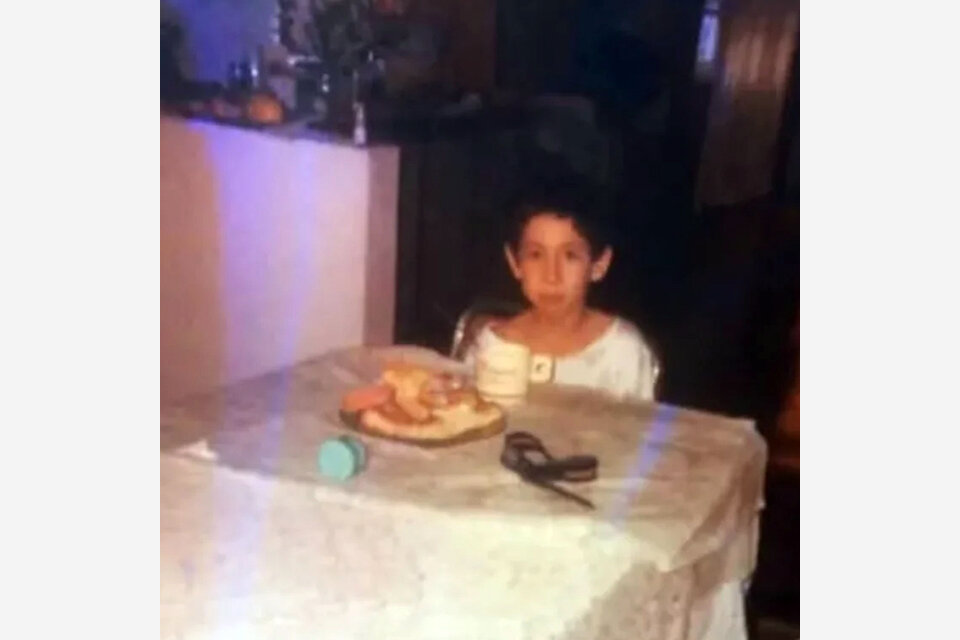Angel Di María's moving story about his childhood: White walls, black walls

The walls of our house were supposed to be white. But I never remember them as white. At first, they were gray. Then they turned black from the coal dust.
My dad was a coal worker, but not the kind that works in a mine. Have you ever seen charcoal being made? The little bags that you buy in any business to make the barbecue come from somewhere, and the truth is that charcoal making is a very dirty job. My old man used to work under a tin roof in our patio and then he had to bag all the pieces of coal so he could sell them in the market. Well, it wasn't just him. He had the little helpers of his, huh. Before school, we would wake up with my little sister to help him. We were 9 or 10 years old, which is the perfect age to bag coal, because you can transform it into a game. When the truck arrived, we had to carry the bags through the living room and then through the front door, so ultimately our entire house was pitch black.
But we ate with that, and that's how my father saved us from having our house taken from us.
For a while, when I was a baby, my parents were doing well. But then my dad tried to do a good deed for someone, and it changed our lives. A friend asked him to be a guarantor for his house, and my dad trusted him. But the guy stopped paying and from one day to the next, he disappeared. So the bank went directly to look for my old man, who found himself drowning having to pay for two houses and on top of that having to feed our family.
His first business was not coal. He tried to turn the front of our house into a small business. He bought drums of bleach, chlorine, detergents, all cleaning things; then he divided them into small bottles and sold them in our living room. If you lived in our neighborhood, you didn't have to go to a store to buy a container of CIF. It was very expensive. So you would come to the Di María's and my mom would sell you a pot for a much better price.
Everything was going pretty well until one day, the little boy ruined everything and almost didn't kill himself.
Yes, it's true, when I was little I was a son of a bitch!
It's not that he was actually "bad", it's just that he had too much energy. He was hyper. One day, my mom was selling in our “business” and I was playing in the walker. The entrance gate was open, so customers could go through, my mom got distracted, I started walking… walking… I kept walking…. I wanted to explore, you see!
I went straight into the middle of the street and my mom had to run like crazy to save me from getting hit by a car. The way she tells it, it was pretty dramatic. That was the last day of Di Maria's cleaning business. My mom told my dad that it was too dangerous, and that we had to find something else.
That was when he heard that there was a person who brought the barrels of coal from Santiago del Estero. But the funny thing is that we didn't even have the money to be able to sell coal. My old man had to convince this person to send him the first shipments, so that he would sell them and thus start paying him.
So when my sister or I asked for sweets or anything, my dad would tell us: "I'm paying for two houses and on top of that a truck full of coal!"
I remember that one day we were bagging the coal with my dad, and it was very cold and it was raining. We were under the tin roof. It was very hard to be there. After a while, I would go to school, which was warmer. But my dad would stay bagging there all day, without a break. Because if he didn't manage to sell the coal that day, we didn't have anything to eat, simple as that. And I thought, and I really believed it: There will come a time when everything changes for the better.
For this reason, I owe everything to football.
* Excerpt from a text published on the website The Play Tribune.
My old man used to work under a tin roof in our patio and then he had to bag all the pieces of coal so he could sell them in the market.
Post a Comment for "Angel Di María's moving story about his childhood: White walls, black walls"